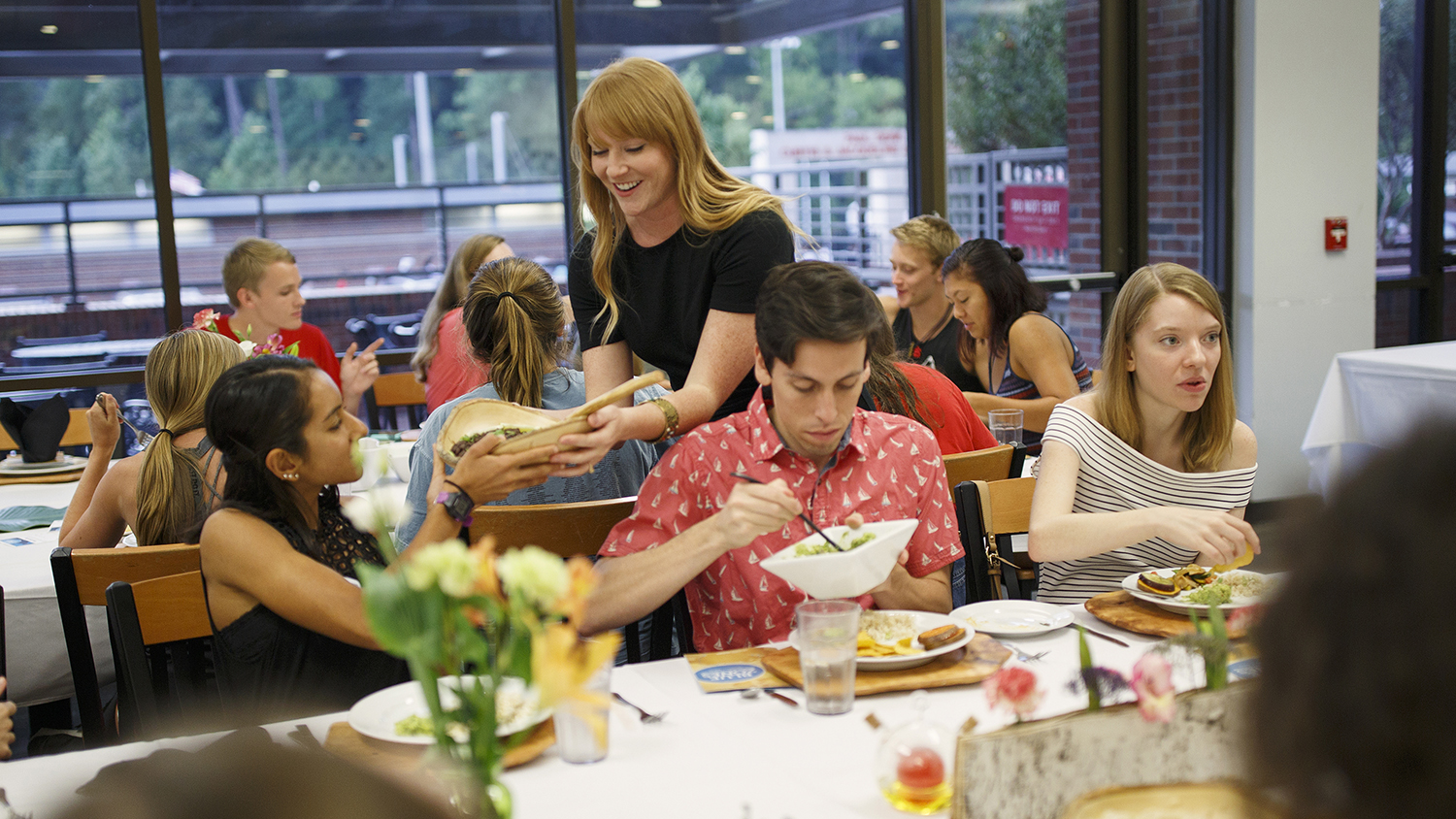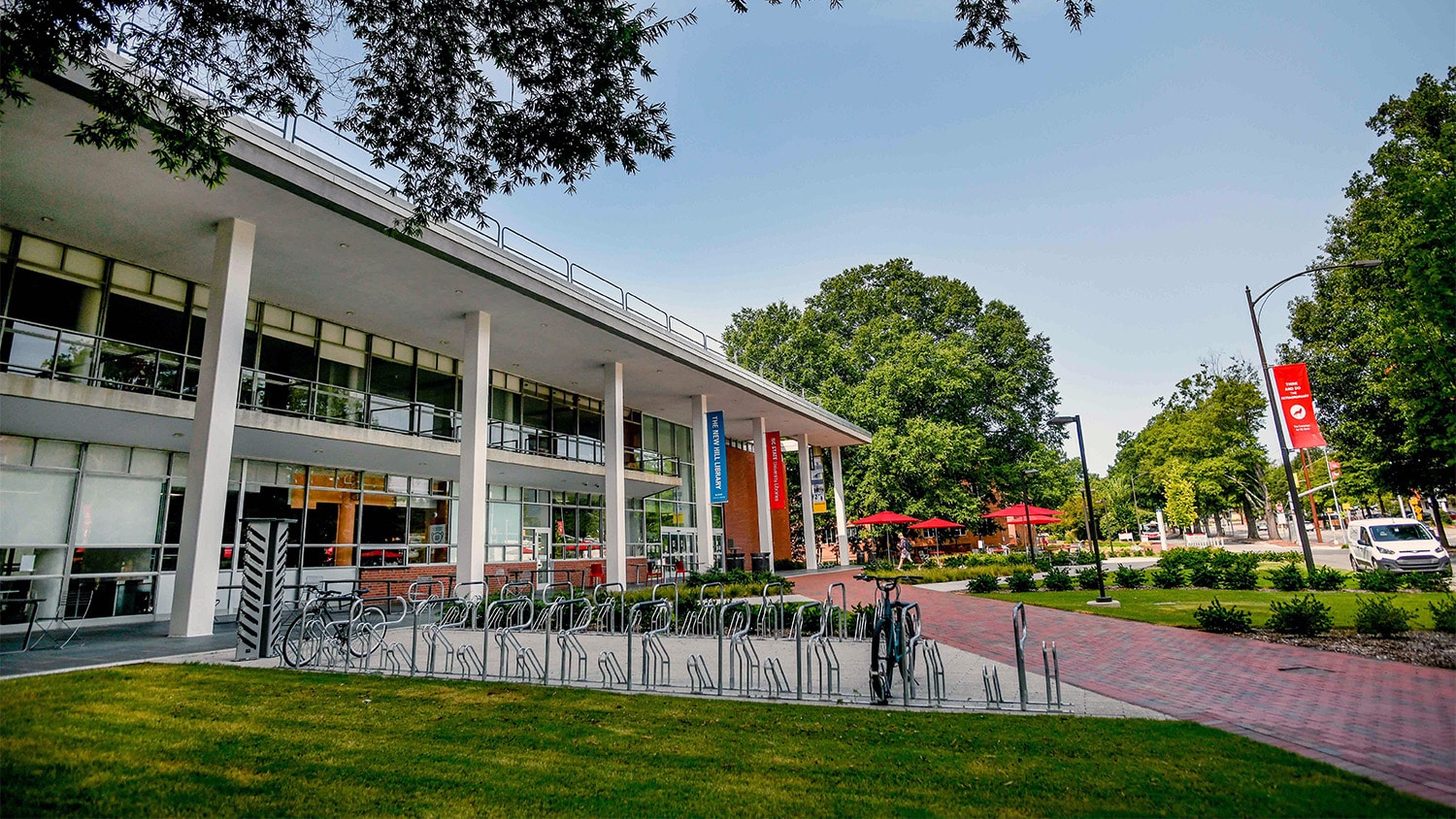Dining Reaches Out to Students With Diabetes

From plain burgers and fries to spicy lentil curry, there’s a dish for almost every palate at NC State Dining — and, increasingly, for almost every dietary need.
For the past few years, NC State Dining has been reaching out to students with Type 1 diabetes to help build a network in which students can support one another, find resources to manage their condition and remain healthy and well fed during their time at NC State.
“Some of the things we’re doing with allergies and especially with dietary needs with our students have really been unique among college and university food services,” says Lisa Eberhart, a registered dietician and certified diabetes educator who serves as NC State Dining’s director of nutrition and wellness.
One of those efforts was a special meal last month geared toward students with diabetes and allergies. The Blue Zones dinner, named for regions of the world known for dietary health and high quality of life, comprised several dishes that balanced protein, fat and carbohydrates. About 30 students tried dishes such as bean salad and Ikarian-style roast chicken. More importantly, they learned about how to navigate menus at NC State, met fellow students with food restrictions and sampled different cuisines in a safe setting.
“Sometimes people with diabetes are scared to try different foods from other cultures because they are not sure what ingredients might be in those foods or how they might affect their blood sugars,” says Jaelyn Phelps, a manager at Case Dining Hall who helped organize the dinner. “This is one thing I wanted to tackle and open people’s eyes to different cultures and other cuisines without being fearful of trying that food.”
Phelps is open about the fact she has Type 1 diabetes and wears a visible insulin pump that she says has encouraged conversation about the condition. She says it’s important for people with the disease to form a network to which they can bring questions and topics for discussion.
“That’s the goal, for those Type 1 diabetics on campus to feel supported and to know there are other people on campus that also have the disease,” Phelps says. At a meeting she attended with NC State Student Health and students, she says, one student said, “No offense, but I don’t want to talk diabetes with doctors and dieticians. I want to talk to my peers about it.’”
The university has made strides to identify and help students with diabetes and allergies. The On Campus app and touchscreens in dining areas enable campus diners to see lists of ingredients in all meals. Students wore T-shirts from NC State Dining that say “Ask me about diabetes” and “Ask me about allergies” during Wolfpack Welcome Week and to the Chancellor’s Picnic. Student Health Services offers help from diabetes educators. NC State is also part of the College Diabetes Network, although currently there is no student to run the program.
Eberhart and Phelps would like to hold another Blue Zones dinner next fall. In the meantime, they encourage students to bring them their questions about diabetes and healthy eating on campus.
“If we can elevate our support for students with Type 1 diabetes here, the word will get out that this is a supportive school where we have diabetes educators on staff, we have people who understand what’s going on with diabetes and that there’s a network of students that your son or daughter can plug into when they get here,” Eberhart says. “Those are all important, extra parts of college.”
- Categories:


